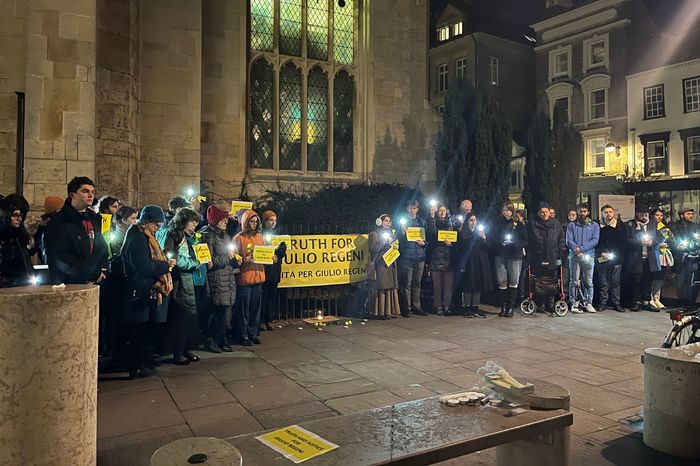Academics vote down climate pro-vice-chancellor proposals
The defeat of the plans has been followed by a new motion to veto new collaborations between Cambridge and the fossil fuel industry

Cambridge academics have struck down proposals for a new pro-vice-chancellor to lead the University’s climate strategy.
The defeat of the plans comes as 150 academics have tabled a motion to veto all new funded collaborations between the University and the fossil fuel industry.
53% of voting academics balloted against the plans for a sixth pro-vice-chancellor (PVC), who would have been charged with leading Cambridge’s sustainability strategy. A majority of 618 academics voted against the proposals, while 555 were in favour.
The results of the ballot were supposed to be released next week, on the 31st of January, but the outcome has been published ahead of time, along with the new motion to cut fossil fuel ties.
A source close to the matter told Varsity that the University's next steps are uncertain: “This was plan A, and I don’t think there’s a plan B.”
“There is a leadership vacuum on this issue: the Vice-Chancellor needs to demonstrate that there’s a real plan, and that this defeat won’t just lead to another year of paralysis,” they said.
The plans for a climate pro-vice-chancellor were first put forward in October, when the University Council wrote that a “reset in approach” is necessary in the wake of the Topping report, which found that Cambridge’s research ties to the fossil fuel industry pose “high reputational risk”.
The proposal was initially accepted by the vice-chancellor, before pressure from academics forced a U-turn, with the plans being put to a vote in Regent House, the University’s democratic body of academics.
The executive of Cambridge UCU was in strong opposition to the proposals, citing cost and delay. “The appointment process for a new PVC may in fact delay progress on the University’s current climate commitments, inadequate as they are,” the branch wrote to members ahead of the vote.
While the Union has told Varsity that they did not adopt a “formal branch position” against the plans, the Union’s committee took a position “against the proposal,” and the University’s “attempt” to “ram the proposal through the Regent House over the Christmas vacation,” they said.
Student campaigners, however, were behind the move, telling Varsity last month that the role is required to “provide much-needed leadership to reconcile the so far directionless response to the Topping Report”.
Fergus Kirman, SU President and a member of University Council, told Varsity: “While this is a setback for the University’s approach, it’s essential that this outcome does not become a reason to avoid stronger, more ambitious climate action.”
“Whatever happens next, the University must step up and provide real leadership on this issue. [...] Any actions arising from the Topping Report should therefore continue urgently,” Kirman said.
The new motion, published alongside the results of the PVC vote, calls for a “temporary moratorium on new funded collaborations with fossil fuel companies”.
The signatories demand that the University prevents any new partnerships between the University and the fossil fuel industry, pending its processing of the recommendations of the Topping report.
Cambridge’s timeline for action following the report has been heavily criticised, with the University facing repeated calls from student campaigners for “a broad array of swift actions [...] to address its role in the climate crisis, and respond to the need for climate action now”.
The motion will be discussed at the University Council on the 12th of February, and is likely to be put to a vote among academics.
A University spokesperson said: “The University Council will continue its efforts to develop a comprehensive strategy on climate change and environmental sustainability.”
 Features / Should I stay or should I go? Cambridge students and alumni reflect on how their memories stay with them15 December 2025
Features / Should I stay or should I go? Cambridge students and alumni reflect on how their memories stay with them15 December 2025 News / Cambridge study finds students learn better with notes than AI13 December 2025
News / Cambridge study finds students learn better with notes than AI13 December 2025 Comment / The magic of an eight-week term15 December 2025
Comment / The magic of an eight-week term15 December 2025 News / News In Brief: Michaelmas marriages, monogamous mammals, and messaging manipulation15 December 2025
News / News In Brief: Michaelmas marriages, monogamous mammals, and messaging manipulation15 December 2025 News / Dons warn PM about Vet School closure16 December 2025
News / Dons warn PM about Vet School closure16 December 2025









